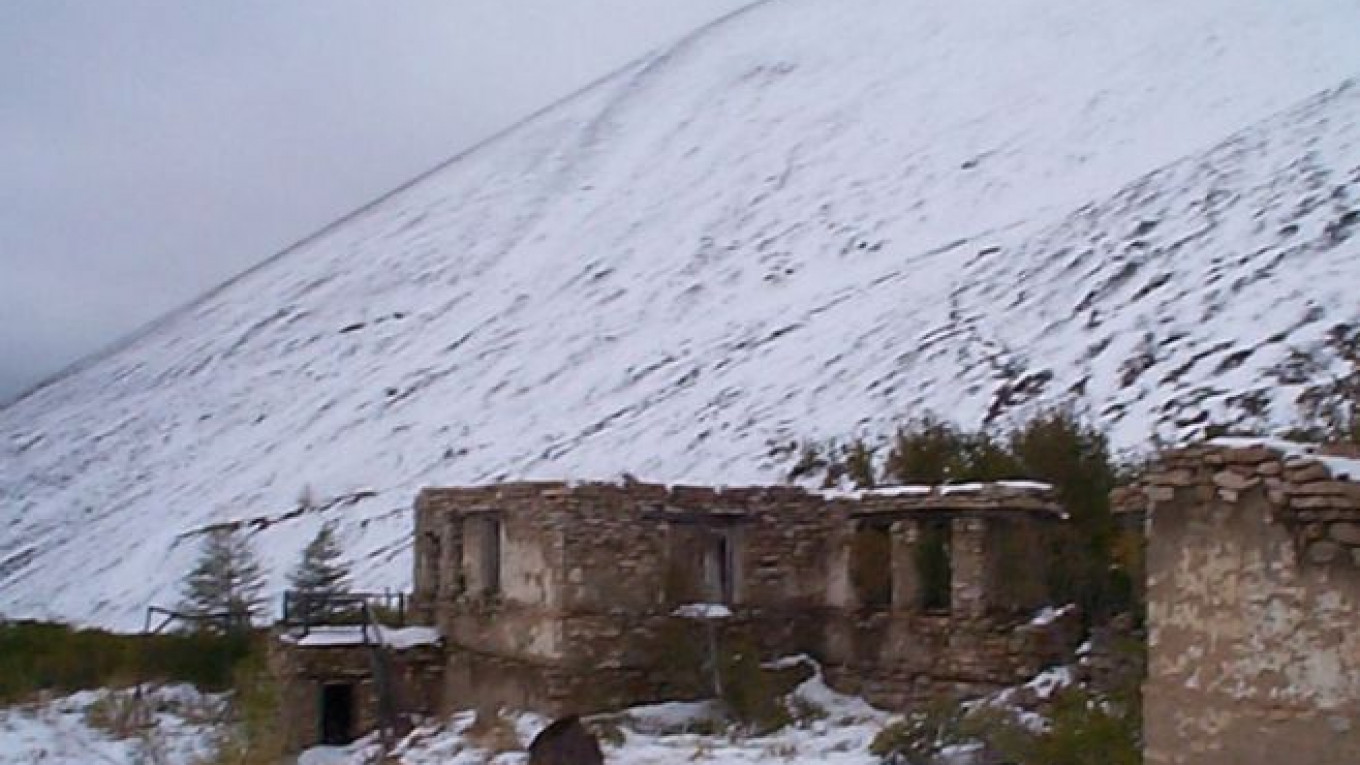A meeting of the Sakha republic's tourism ministry last week recommended that the republic take steps to construct tourist camps at the sites of the Dalstroi, Yanstroi, and Senduchensky Gulags.
Gulag, an acronym referring the government body that administered the Soviet system of prison camps, describes a type of forced labor camp used to hold criminals and political prisoners from 1934-1960. Typically located in remote regions, Gulags put prisoners to work at tasks like mining, logging, and basic manufacturing.
According to maps available from Memorial, the republic of Sakha was home to 13 Gulags, while the neighboring Magadan Oblast was home to considerably more. Of the Sakha camps, the Dalstroi Gulag was among the largest: Between 1932 and 1954, 859,911 prisoners entered the camp, 121,256 of whom died during their time there.
While some former Gulags have been adapted for use as prisons, many of them now stand empty. Kormylitsyna noted that the remote location of the republic of Sakha's Gulags put them in the midst of pristine wilderness and offered the possibility for developing ecotourism.
A Message from The Moscow Times:
Dear readers,
We are facing unprecedented challenges. Russia's Prosecutor General's Office has designated The Moscow Times as an "undesirable" organization, criminalizing our work and putting our staff at risk of prosecution. This follows our earlier unjust labeling as a "foreign agent."
These actions are direct attempts to silence independent journalism in Russia. The authorities claim our work "discredits the decisions of the Russian leadership." We see things differently: we strive to provide accurate, unbiased reporting on Russia.
We, the journalists of The Moscow Times, refuse to be silenced. But to continue our work, we need your help.
Your support, no matter how small, makes a world of difference. If you can, please support us monthly starting from just $2. It's quick to set up, and every contribution makes a significant impact.
By supporting The Moscow Times, you're defending open, independent journalism in the face of repression. Thank you for standing with us.
Remind me later.






